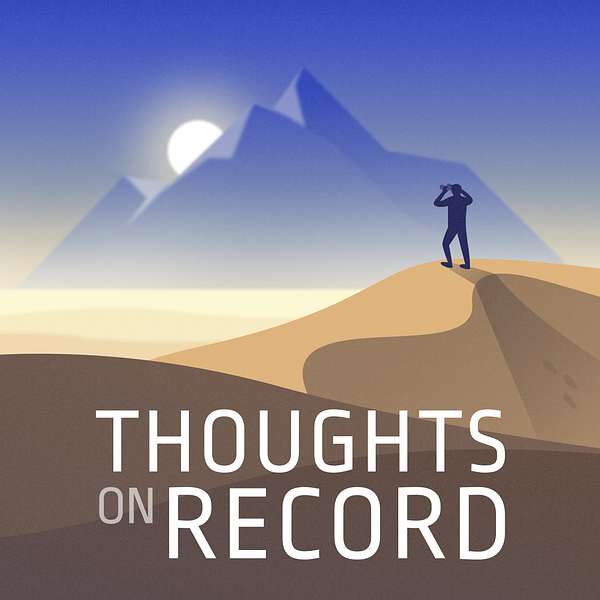
Thoughts on Record: Podcast of the Ottawa Institute of Cognitive Behavioural Therapy
Thoughts on Record is the podcast of the Ottawa Institute of Cognitive Behavioural Therapy (OICBT) located in Ottawa, Ontario, Canada. Each week we explore topics relevant to clinicians and mental health consumers from a cognitive behavioural perspective; however, if you’re generally interested in psychology, psychotherapy, evolutionary psychology, mental health, the brain, dynamics of human behaviour, creativity, wellness & performance then this podcast will certainly be of interest to you. Thoughts on Record is hosted by OICBT clinical psychologist Dr. Pete Kelly, C. Psych. Dr. Kelly is a Clinical Professor in the School of Psychology at the University of Ottawa and Adjunct Research Professor in the Department of Neuroscience at Carleton University. In addition to his clinical work, Dr. Kelly is actively involved in directing speciality programming at OICBT, teaching and supervision, providing workshops to mental health professionals and is a frequent speaker to organizations around the impact of stress on well-being. Email the show: oicbtpodcast@gmail.com. You can visit the OICBT at www.ottawacbt.ca. Original theme music courtesy of OPK5, outro music courtesy of Baldhero & Van Whelan https://baldherovanwhelan.bandcamp.com
Thoughts on Record: Podcast of the Ottawa Institute of Cognitive Behavioural Therapy
Dr. Yoni Ashar: Pain Reprocessing Therapy
Use Left/Right to seek, Home/End to jump to start or end. Hold shift to jump forward or backward.
Comments or feedback? Send us a text!
Chronic pain is emerging as one the most misunderstood aspects of the human experience. Owing to this misunderstanding, there is often needless suffering as a function of many clients and clinicians not understanding the central role psychological processes can play in the experience of many types of chronic pain. Clinical psychologist and researcher, Dr. Yoni Ashar, joins us for a fascinating discussion focused on understanding chronic pain from the lens of Pain Reprocessing Therapy (PRT). In this discussion we cover:
- the conceptualization of chronic pain within the Pain Reprocessing Therapy (PRT) model
- the personality traits that can predispose one to chronic pain
- helping clinicians to navigate the frequent perception by chronic pain patients that they are being told “it’s all in their heads".
- the importance of "buy-in" that the pain is not originating from tissue damage (when medical investigations confirm no clinically significant structural challenges, infection etc.).
- signs & patterns of symptom presentation that can indicate that pain is of a psychological origin rather than strictly physical origin
- brief consideration of the intensive short-term dynamic therapy model in the context of chronic pain
- typical interventions within PRT
- the promise of PRT: relief from pain vs. different relationship with pain
- how “standard” medical models of pain and even mindfulness-based approaches to pain differ from PRT
- the evidence base for PRT
- the neurobiology of chronic pain from a PRT lens
- the contribution of trauma to the manifestation of chronic pain
- the role of medication, including antidepressants in the treatment of chronic pain from a PRT perspective
- application of this model to other physical/somatosensory challenges (dizziness, chronic itch, nausea, fibromyalgia etc.)
Have comments or feedback? Email the show: oicbtpodcast@gmail.com
Dr. Ashar studies the brain, pain, and emotion. He is a postdoctoral associate at Weill Cornell Medical College, and he completed his doctorate in clinical psychology and neuroscience from the University of Colorado Boulder, under the mentorship of Drs. Sona Dimidjian and Tor Wager. Dr. Ashar's current focus is on psychological treatments for chronic pain. Other research areas include brain mechanisms of placebo effects, meditation, and empathy, using functional MRI and machine learning. His research seeks to understand how our thoughts and behaviors influence our health and to create neuroimaging research products with clinical applications.
https://www.painpsychologycenter.com